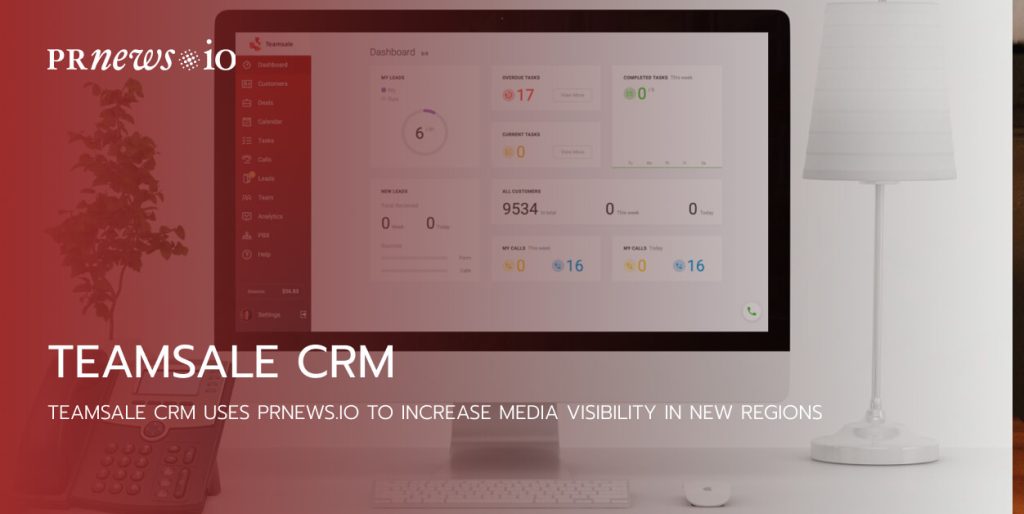Before anybody wants to start a business with you or buy a product, they’d have Googled information about you. The links appear on the first few pages of search engines when people are searching your reviews, articles, and social media pages. That’s why SEO reputation management is crucial.
Handing a positive online reputation is no longer matter of choice. Successful online reputation management SEO activities help their brands gain good results via proactively coordinating content, credible websites and search engine results pages.
In this article, let’s check over what SEO reputation management is and why it matters for your business. Additionally, you’ll find reputation management SEO strategies to help improve positive search results regarding your business and learn what you can do with negative reviews.
What Is Reputation Management in SEO?
Search Engine Optimization (SEO) Reputation Management is a marketing method of managing information about what the public can see in search results about a company.
Reputation management in SEO is all about dealing with the company’s representation in search engines. It includes different activities, from auditing a company’s online reputation, tracking customer feedback, to using SEO reputation management tools to solve the issues that may ruin the brand’s online reputation. Its function is also to repair reputation damage when it occurs.
How is SEO Changing?
The Google search rankings rules are changing very fast. Content is still king, but user-generated content (UGC) in the format of customers’ reviews also has a profound impact on search relevance — in several directions:
- Each user-generated feedback is considered as new, relevant content, increasing search engine results page (SERP) ranking based on newness.
- Google’s algorithm takes into consideration both company content and UGC (among many other elements such as accurate business listings), improving your SEO position based on volume and backlinking. It’s just one of the many motives to carry on with Google’s reputation management.
- Your average star rating influences your visibility in search engines, no matter how well you perform and keep up with SEO trends in 2022.
Add them up and you’ve got the new SEO strategy — make your website highly rated and get the best search results.
Why SEO Reputation Management Really Matters?
Online reputation management SEO activities matter because it has a huge impact on the website’s ranking. And a poor first page of results will decline your business in multiple ways:
- Loss of Organic Search Traffic. Probably the most obvious side impact. In the era of fraud, cheating, and online scams if you see a negative comment in the search result (or many) immediately underneath the name of the company, you won’t continue purchasing or collaborating with such business and may abandon the search at all.
- Here’s where it changes for the worse – as your Click Through Rate (CTR) declines, the same do your rankings. Why? Because the negative reviews get 10x (approximately) the clicks of positive results. People love drama and hate to be cheated. Therefore your positive results get fewer clicks, their negative results get many and, because CTR is a crucial ranking factor for Google and other search engines, the negative reviews may get ahead of even your page.
- Loss of Paid Search Traffic. The ads are expensive anyway. Those expenses are not nearly as effective when arising next to a set of negative comments or search results. Better to spend that budget on improving your online SEO reputation. Which will provide you with an even bigger conversation.
- Loss of Overall Marketing Spend Effectiveness. How much do you spend on digital marketing? What about traditional sources like billboards, leaflets, radio, TV? No matter what you’re doing these days but what you’re 100% expecting from them is that those prospects end up having to “Google you” to visit your website or social media account. When instead of reading the positive reviews and instead of seeing a ruined reputation, all the expenses you’ve spent reaching out to the client are instantly wasted. The old rule that your prospect needs to hear about you 20 times before they’ll buy still works. In the case of a bad online reputation, all those touchpoints that you’ve invested in might as well have been wide off the mark.
- Loss of Profitability. It’s hard to be the best provider asking for a premium price when your reputation has been spoiled. As you handle traffic declines and a negative impression about your business, you lose some of the biggest selling points you may ever have had. People wouldn’t want to pay a premium or even the market price to buy your product or service in this case.
- Loss of Company Value. Depending on the company, a lot of your brand value may come from your online reputation. Often this is shown by the “Goodwill” line on the financial reports. The consequences here influence how your investors, lenders, vendors, and other business partners view you…not just your customers.
Strategies for Online Reputation Management
Today, clients have the power to advance their opinions right before you get to talk to them or address their fears. One negative comment can spread like a virus and influence other people’s opinions about your product or brand, potentially damaging your reputation for good.
It’s within your power to prevent this. Here are proven methods to improve your SEO reputation management strategy:
Strategy #1: Boost the rankings of positive search results
This follows the good business experience of letting your good reputation overshadow the negative. A well-run business will have enough positive reviews featured high in the SERPs to be able to base on.
There are also ways to create positive results which are described below.
Strategy #2: Optimize Your Content Marketing Strategy
Once you’ve created your website, the next stage is to optimize it for search engines. Let’s begin with content marketing. SEO reputation management turns around strengthening the quality and relevance of brand-related content that appears on search results. This means you need to fulfill your website with valuable, information-rich content that is relevant to your customers’ needs and provides solutions to their problems. Write and distribute long-form blog posts, case studies, expert interviews, and other types of content that emphasize your thought leadership brand. You may also publish client testimonials and positive online reviews on your web pages and blog posts.
Strategy #3: Set Social Proof on Your Website
Online reviews motivate customers’ trust and increase loyalty. Showing your customer reviews on your website with a help of the customer review widgets is a great way to display page visitors that your business is popular and has an experience. Potential clients value up-to-date feedback from the last 90 days over older comments. This means showing your most recent customer reviews and ratings on your website can boost your visitors’ purchasing decisions even faster.
Online reviews:
- Provides you free advertising
- Improve your search engine results
- Show your intention to provide the best service to your clients
- Serve as a free library of useful business ideas
Strategy #4: Remove, de-optimize, or modify the negative search results
This is rarely easy to make but it’s always a good first step to start with. Negative comments may come from multiple sources. Some big ones may include:
- Negative articles: Extremely hard to deal with when the content is a long-form post.
- SEC and other Government notice: Government platforms rank well and are considered naturally trustworthy by search engines. Also complicated to handle.
- Reviews and scam sites: Once your website will be suspected of something negative, people’s comments will be difficult to stop.
- Litigation, tax, or criminal records: Usually have a lot of text, and painting out your name will make them rank well. They are also likely to be published on credible .gov or .org site boosting their authority.
- Bad reviews (text or videos): One or two can be toned down by positive comments. The problem is if you’re getting these regularly. Or, even worse, if it’s a big influencer with a video that went viral.
- Negative forum comments: Reddit posts and groups on Facebook are ranking well.
- Direct assault through an Exact Match Domain (EMD) and/or a special website: It happens nos so often, but some people can use such techniques.
Some of these can be lessened by working directly with the content host or owner, giving him compensation, or through a legal notice if the content is truly slanderous, libelous, and untrue.
If you have ANY control over the post itself then you can try to de-optimize (basically the opposite of what good SEO activities look like).
Strategy #5: Press down the negative search results.
Here is the easiest truth and the core of search engine reputation management. To press down a single result to page two, you’ll have to raise other results to boost them in search engine results (remember keeping your site at the number one position for that search term).
Want to push a link with a negative comment to page 3? Hence, you should optimize more links to outrank the negative result.
Final Words
The SEO reputation management process helps boost your marketing, sales, and technology efforts. SEO content is a key element for achieving the results you’re searching for on the internet. By discovering the top-performing reputation management SEO strategies to boost search results for your branded keywords, you’ll be able to establish a good image online and create opportunities for your business growth.
Content Marketing Platform
- 100,000+ media publications;
- get backlinks to your product;
- scale work with content distribution.
Read me:
- Online Reputation Management for Doctors – 10 Must-Follow Strategies
- Efficient Lawyer Reputation Management
- A Strategic Overview for Corporate Reputation Management
- What to Do with Social Media Reputation Management
FAQ: SEO Reputation Management
What is reputation management in SEO?
Search Engine Optimization (SEO) Reputation Management is the process of managing what the public thinks in search results about a brand. This is implemented through several different tools and methods.
In short, it’s about displaying a company in the best possible way for search engines. SEO Reputation Management spotlights keyword performance and SERP (search engine results page). It’s about finding opportunities to boost the ranking of positive content and push down negative search results.
What is SEO reputation?
SEO reputation management is all about improving the quality of business-related content that people can find in search results. This means you need to make sure your website contains valuable, positive, information-rich content that matches your customers’ needs and makes their lives easier.
SEO reputation management uses search engine optimization and other techniques to advance the way businesses (brands, individuals, products, services) are seen online.
How important is reputation management when selling SEO?
Here are some of the main reasons why the company should care about SEO Reputation Management:
- Loss of Organic Search Traffic. So what happens to the website of the company with bad reviews? It begins to drown in the ocean of the negative content and stigmatized, leading to a decline in website visitors.
- Loss of Paid Search Traffic. Paid ads are a waste of money at this point because the negative press alongside the ads will make users avoid clicking on the ad.
- Loss of Brand Value. Loss of brand reputation can be a competitor’s win when clients or partners move to the other side.
- Loss of Money:
- Loss of clients
- Loss of marketing revenue
- Loss of stock value
- Increased expense





